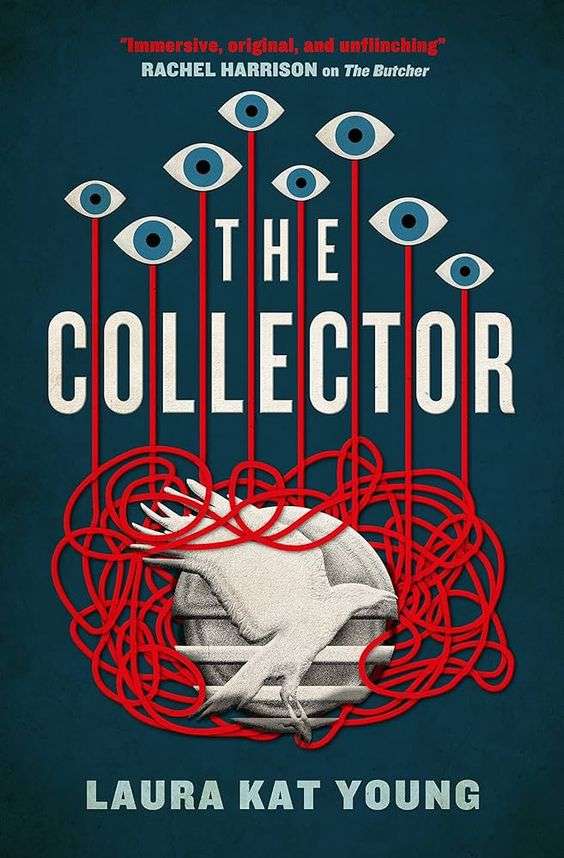The Collector by Laura Kat Young
Titan Books, £8.99, paperback
Reviewed by Nadya Mercik

The Collector – a nightmarish dystopia by Laura Kat Young – was advertised in some of the sources as a combination of 1984 and Never Let Me Go. The book definitely provides an unsettling, in some ways, read. In many dystopian stories, characters succumb to depression when the world hits them too hard. But here, the author builds the world with clinical depression at its very core. Perhaps because of that, the novel becomes even more intimate. Many dystopian novels stay close to their characters to show their confrontation with the state, but here it is also a confrontation with oneself, one’s feelings, one’s memories.
Lieutenant Dev Singh works for the Bureau. He is a Collector. His job is to visit struck people just before they are about to be reset and collect a memory for the Catalogue. Dev is very successful in his job – he won The Collector of The Year title a few times because his collections go without a hitch. But Dev doesn’t just pass on the memories to the Bureau; he also preserves them in his diary, where they are mixed with his own dreams and thoughts. Though Dev believes in the Bureau, he has a fear that some of these things will be lost. His urge to write feels almost like an obsession.
Dev has only one close friend – Shay. They grew up together in the Home, an institution where the children of reset people go. Shay always worries about Dev and tries to keep an eye on him. She takes him along with her when she goes to a pub, prompts him to talk more to other people and is always ready to lend an ear. Because if people start noticing that Dev prefers to stay away, they might consider him struck, and it will be the end of him.
We meet Dev at a time when the country is going through an uptick. There was a terrible accident, and people’s moods are clearly vulnerable. As Dev goes on with his everyday job, the cases get more and more difficult, and his own thoughts and feelings become overwhelming. No matter how he tries to preserve a decent façade for the Bureau and the others, he fails. And then the real nightmare begins.
The idea of making the government tackle depression as its major function is an interesting twist of the traditional dystopian/utopian purpose of the government to keep people happy. Here, they literally do that. A whole structure is built around it with various jobs, places, procedures and technology, and it was really interesting to dive into that. Throughout the story, the author ponders what depression is and doesn’t draw a solely terrible picture of it. There are so many nuances to it, like, for example, Dev’s relationship with his own memories or shadows of them. As a child of a reset person with clinical depression, he’s got it in his genes, but he doesn’t always rebel against it. On the contrary, he is willing to remember his mother, and, at times, he thinks he does have glimpses of some details. And Dev isn’t the only one. Some of his ‘charges’ aren’t willing to say goodbye to their grief either. At the same time, the Bureau considers it the worst evil and the treatments they put in place are horrifying.
Laura Kat Young does a fantastic job describing the feelings and moods of Dev. It is, in a way, a very internal book, though there are enough events and actions there, too. I really liked the societal structure, but I must say that in places, some details of the worldbuilding looked less logical. The story is divided into three parts, but basically, there are just two and an epilogue. Due to that, the story feels a bit rushed in the end, and I had a feeling that it had more potential than was realised. There are some storylines that could have gotten more development and a resolution in the end. Also, I was really very curious about how this world has come to be. Many dystopian novels don’t require an explanation – they just draw a world for us or give the reason in passing, focusing on the present of the state rather than its past. However, with the story Young writes and the worlds she portrays, you keep asking yourself, what is causing these upticks? How did it all come to be?
All in all, The Collector has an interesting concept behind it, and in a way, it is an important book because it draws our attention to grief and depression and the need to understand them.
